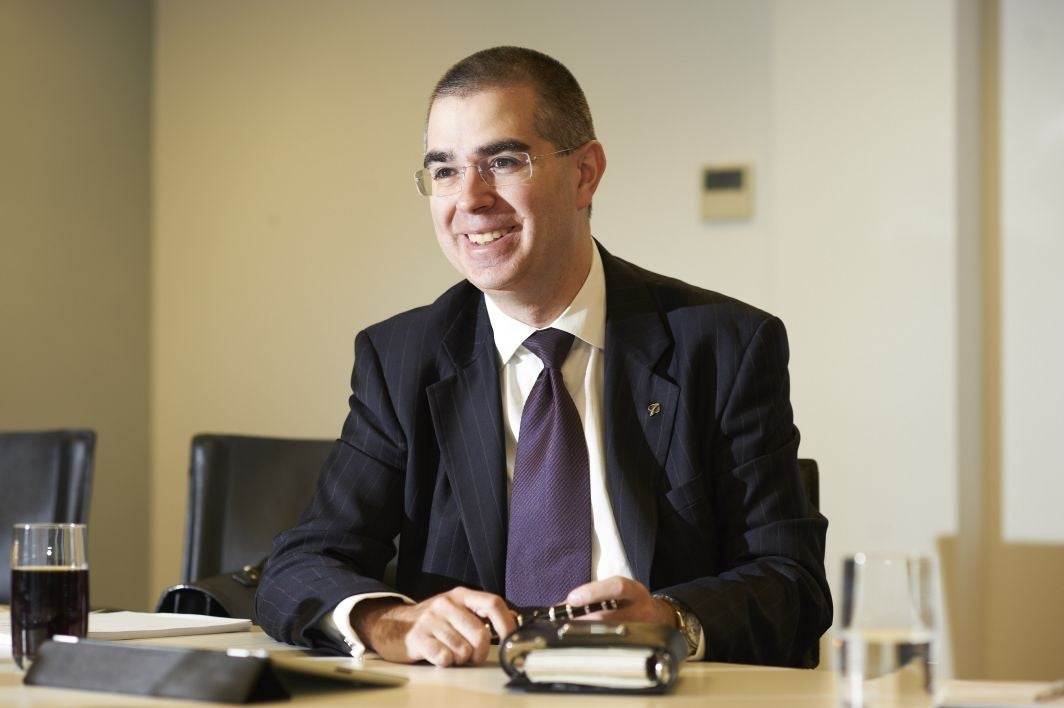Quindell, the scandal-ridden insurance firm, is being investigated by City regulators
The insurance claim outsourcer – the one-time darling of AIM – has shares suspended as new inquiry begins. Jamie Nimmo reports on an extraordinary fall from grace

The Quindell tale has taken yet another turn and you get the feeling it might not be the last.
No sooner does it look as though the company has moved on from its murky past, which includes questions about its profitability and corporate governance, than another inquiry emerges.
This time, the City watchdog has launched an investigation into potentially misleading statements made by the scandal-struck insurance claims outsourcer under the guidance of its former chairman Rob Terry, who resigned in November last year amid a share-dealing scandal.
Quindell said it would “co-operate fully” with the Financial Conduct Authority’s investigation into “public statements made regarding the financial accounts of the company during 2013 and 2014”.
Shares in the AIM-listed company have been suspended pending the release of the group’s 2014 financial statements, which is expected by the end of June.
The group has kicked off its own review alongside its auditors of “a number of the company’s historic transactions and acquisitions”.
PwC’s review has already revealed its accounting policies were “at the aggressive end of acceptable practice”.
The professional services division, which was seen as the problem child, was recently sold to the Australian law firm Slater & Gordon for £637m. This is the business which made a name for itself as a “deluxe ambulance chaser”, working as an outsourcer for the insurance industry.
Updated annual results for 2013 and 2014 will shed light on the scale of the inconsistencies, but the company has warned adopting a more conservative approach to recognising revenues and profits will “materially impact” previously reported results.
Augustin Eden, a research analyst at Accendo Markets, called the company a “comedy show”, adding: “Assuming Quindell is viewing its own behaviour through somewhat rose-tinted specs, I wouldn’t attempt to imagine what the FCA might find. You wouldn’t be able to make it up.”
For those not up to speed with Quindell’s somewhat shady history, the business was once a darling of AIM whose value shot up to around £2.7bn on the back of a string of contract wins. A promotion from AIM and inclusion into the FTSE 250 beckoned until a critical report was released in April last year by little-known US short-seller Gotham City Research, which wiped 39 per cent off Quindell’s stock market value in just a day.
Gotham City valued Quindell at just 3p a share, labelling it “a country club built on quicksand” based on its main business until 2007 being a golf course and pub in Hampshire. It claimed as much as 80 per cent of reported profits were “suspect” and was suspicious about how a former country club operator was able to generate “Google-esque profit margins” in only two years.
Quindell sued Gotham City for defamation and won by default when Gotham failed to defend itself.

Questioning the sale of the professional services division recently, Gotham City wrote: "We are puzzled by Slater & Gordon’s proposed transaction. That said, stranger things have happened. Hewlett Packard acquired Autonomy."
Things got worse for Quindell’s share price when Rob Terry was ousted from the business he founded following a controversial share-buying scheme run by Equity First Holdings. It initially appeared that Mr Terry and two other directors were increasing their stakes in the business when in fact they were selling down. Mr Terry ended up cashing in about £9m of stock.
Canaccord Genuity handed in its notice as the company’s joint broker the day before Mr Terry’s departure.
The story goes that Mr Terry forced Canaccord to sack its technology analyst Kevin Ashton for refusing to advise clients to buy the shares.
The clean-up act has been long and messy for Quindell but it has got rid of the troublesome professional services arm. It has also enlisted the help of well-known figures in an attempt to restore credibility. Richard Rose, the chairman of online white goods retailer AO World, has taken Mr Terry’s seat in the boardroom, while former Conservative Party leader Michael Howard is a non-executive director.
Now, Quindell’s job is to return cash from the sale to shareholders, sell off some of the remaining businesses and undergo a complete facelift.
As for Mr Terry, he now runs Quob Park Estate, a private technology-focused investment group, whose Hampshire head office is notably close to Quindell’s and whose logo looks very similar. It has also taken control of 360Globalnet, a small Quindell unit.
Mr Terry’s wife, Tracey Terry, is listed as a director, along with Stephen Scott, who was implicated in the share-dealing scandal at Quindell. Mrs Terry is also a former employee at Quindell and Innovation Group – another company he founded and was ousted from.
Quob Park, which was once registered as Indoor Golf City Limited, claims to invest in private and public companies “using our own capital alongside investment capital from other high net worth partners or funds as appropriate”. It added that while it will remain private equity-focused, “in the future we will open our doors to retail investors”.
Naturally, Quindell is one of Quob Park’s investments. In a statement on the FCA’s investigation, it said: “We hope the investigation will be conducted speedily, and will provide clarity and allow everyone to draw a line under this matter, which has provided uncertainty for Quindell and its stakeholders, as evidenced by Quindell’s share price.” It is not known how large its stake in the business is but it has not yet crossed the 3 per cent threshold required for investors to disclose holdings to the Stock Exchange.
Among Quob Park’s other investments is a 9.99 per cent stake in cash-strapped broker Daniel Stewart, which interestingly was in charge of Quindell’s AIM float in 2011. News of Mr Terry’s interest saw the penny stock’s shares jump more than 1,000 per cent.
Quob Park said it does not plan to lift this to above 10 per cent until the inquiry into Quindell is complete, sparking a 34 per cent fall in Daniel Stewart’s shares.
In May, Daniel Stewart appointed Beaumont Cornish as its nominated adviser – something all AIM firms must have to trade on the junior market. The terms of the appointment state that it is allowed to quit at any time “should any party become a 10 per cent shareholder (or more)”.
Join our commenting forum
Join thought-provoking conversations, follow other Independent readers and see their replies
Comments
Bookmark popover
Removed from bookmarks